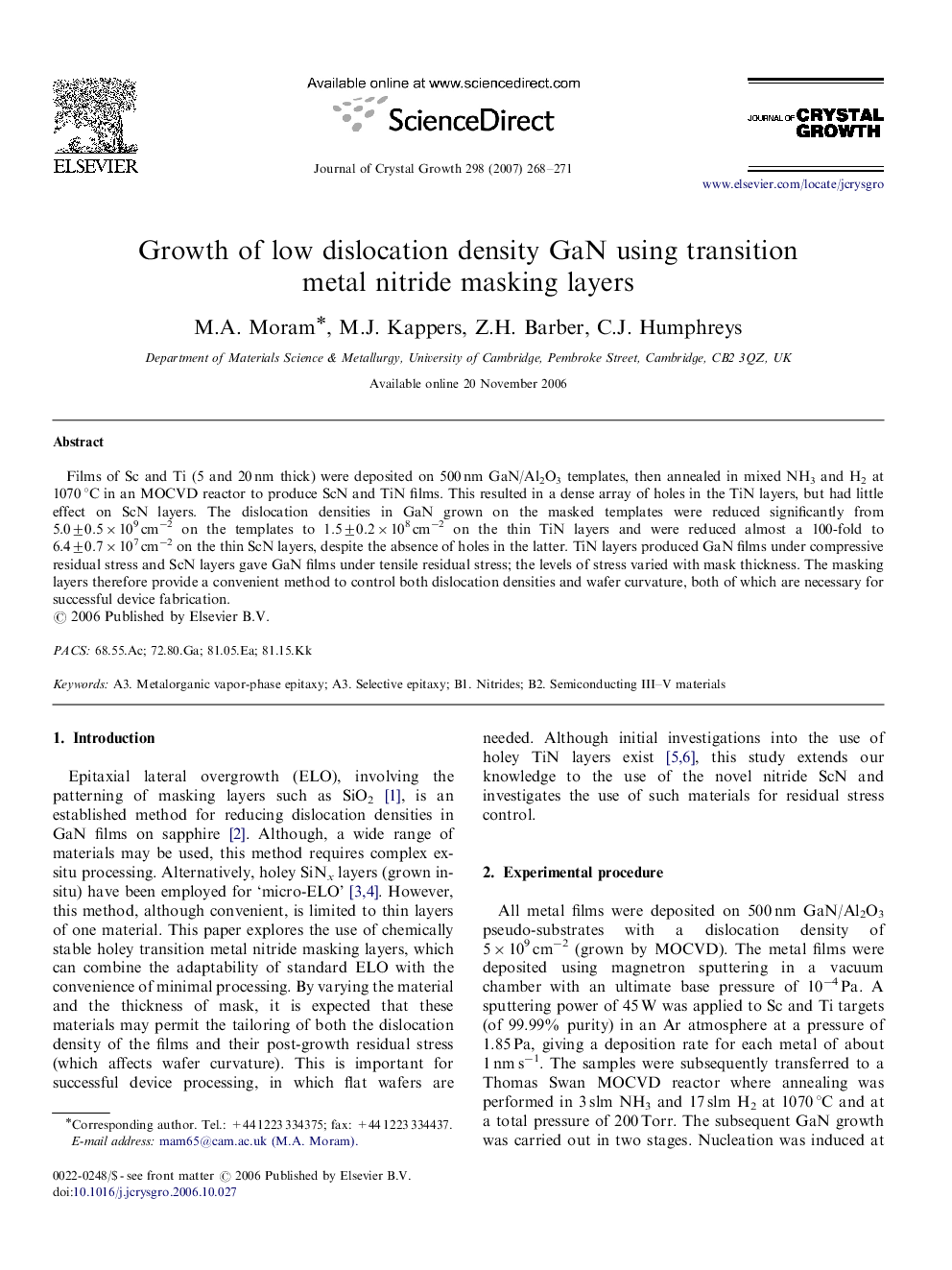| Article ID | Journal | Published Year | Pages | File Type |
|---|---|---|---|---|
| 1795924 | Journal of Crystal Growth | 2007 | 4 Pages |
Abstract
Films of Sc and Ti (5 and 20 nm thick) were deposited on 500 nm GaN/Al2O3 templates, then annealed in mixed NH3 and H2 at 1070 °C in an MOCVD reactor to produce ScN and TiN films. This resulted in a dense array of holes in the TiN layers, but had little effect on ScN layers. The dislocation densities in GaN grown on the masked templates were reduced significantly from 5.0±0.5Ã109 cmâ2 on the templates to 1.5±0.2Ã108 cmâ2 on the thin TiN layers and were reduced almost a 100-fold to 6.4±0.7Ã107 cmâ2 on the thin ScN layers, despite the absence of holes in the latter. TiN layers produced GaN films under compressive residual stress and ScN layers gave GaN films under tensile residual stress; the levels of stress varied with mask thickness. The masking layers therefore provide a convenient method to control both dislocation densities and wafer curvature, both of which are necessary for successful device fabrication.
Keywords
Related Topics
Physical Sciences and Engineering
Physics and Astronomy
Condensed Matter Physics
Authors
M.A. Moram, M.J. Kappers, Z.H. Barber, C.J. Humphreys,
